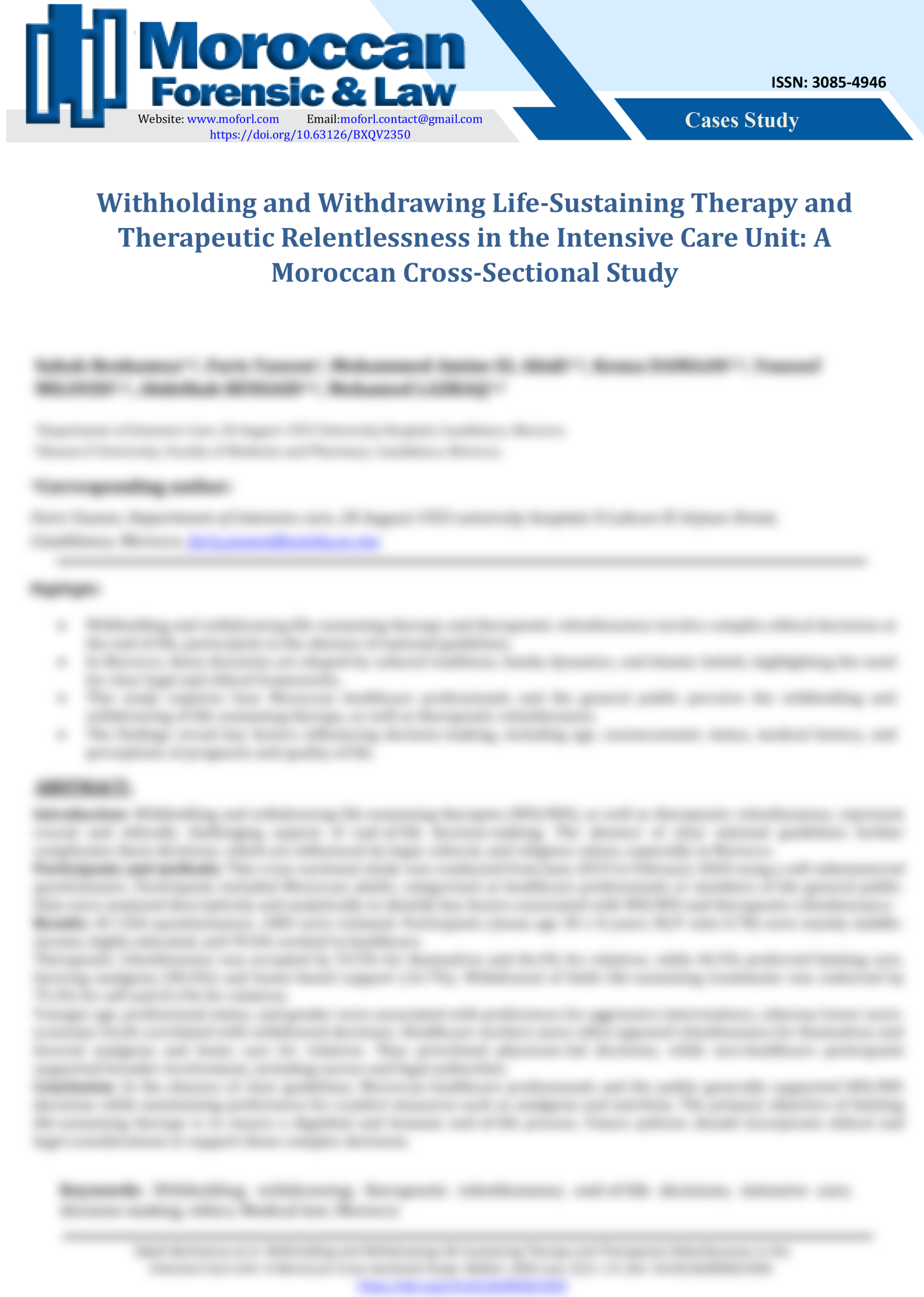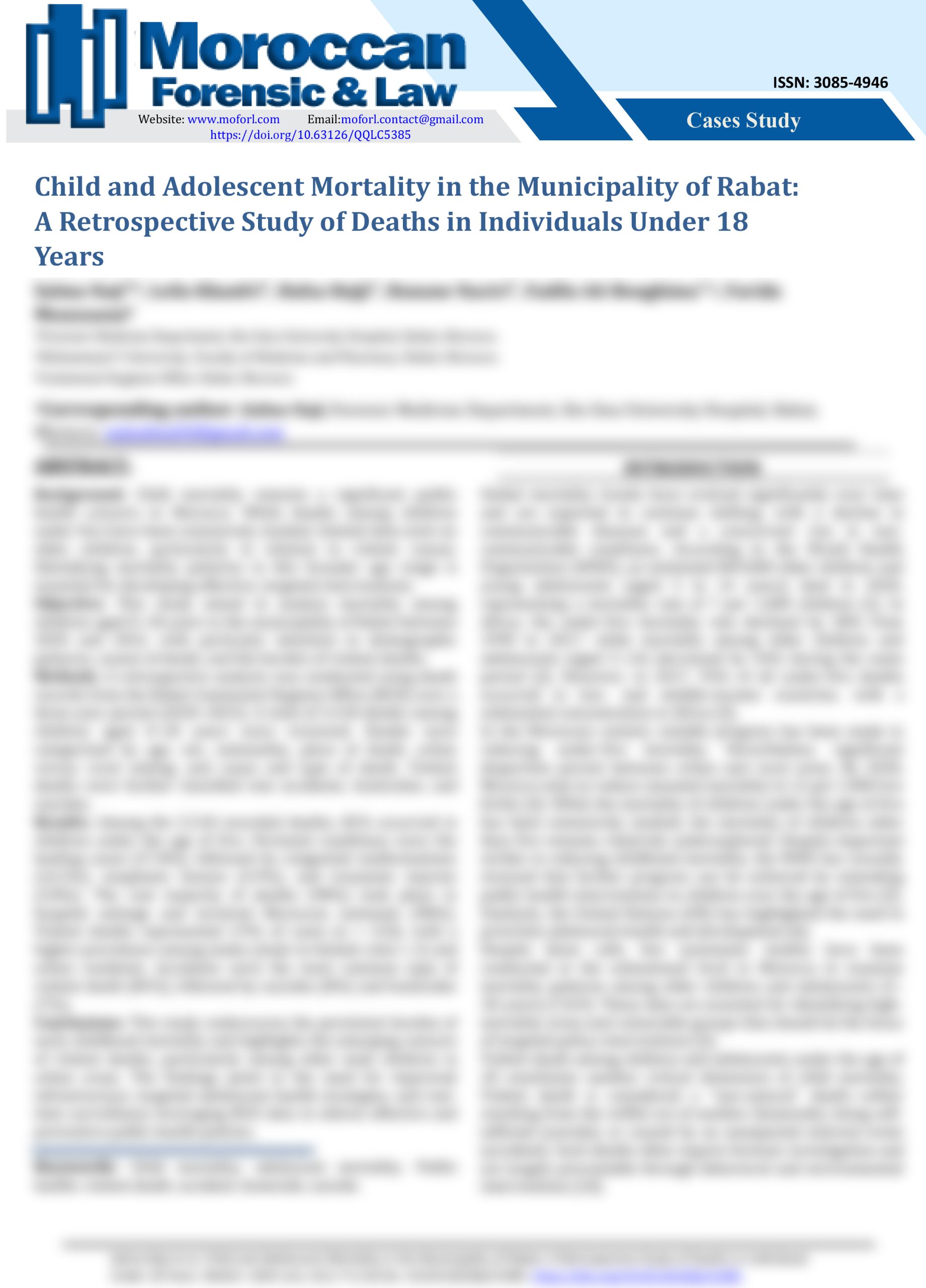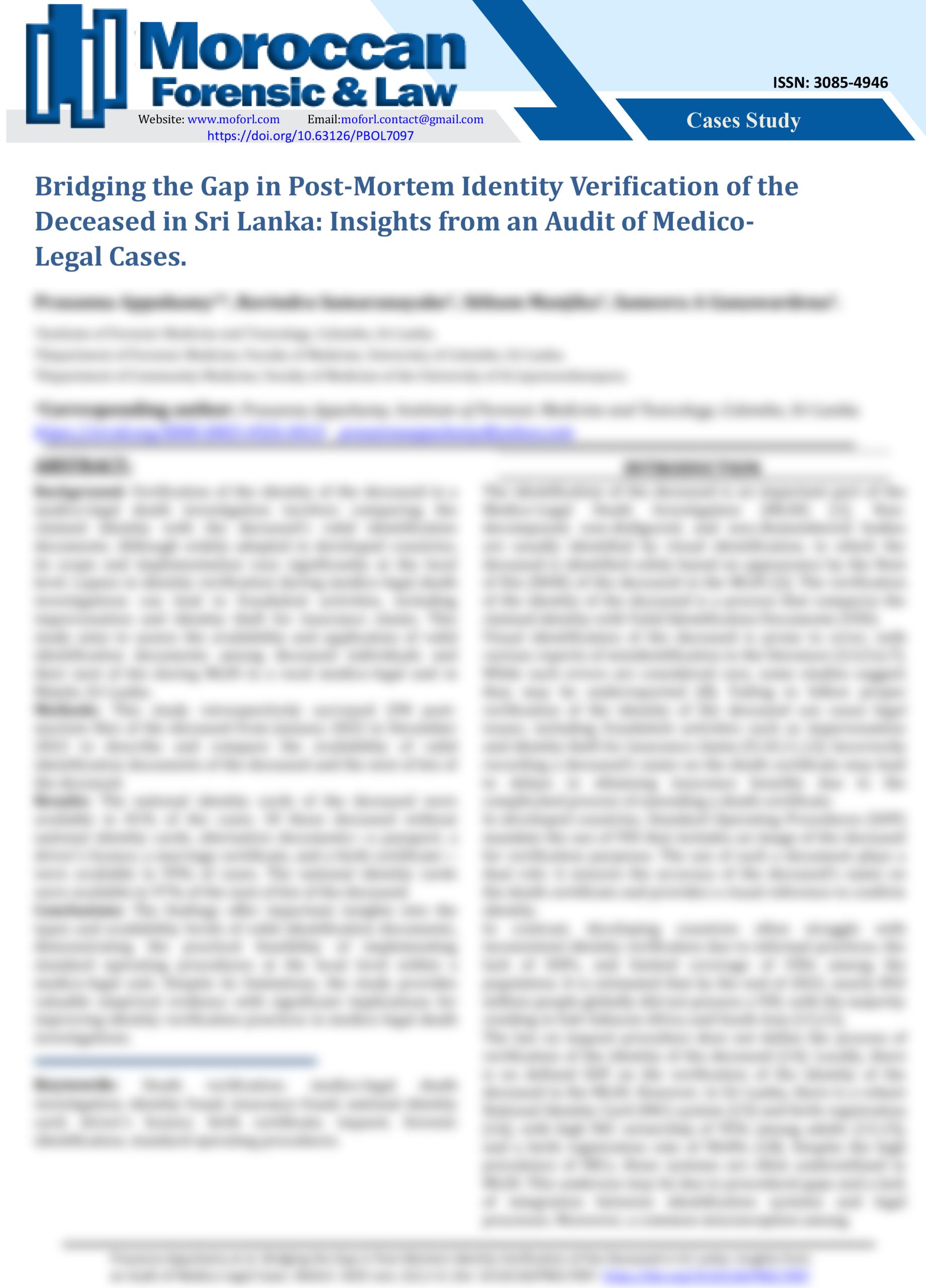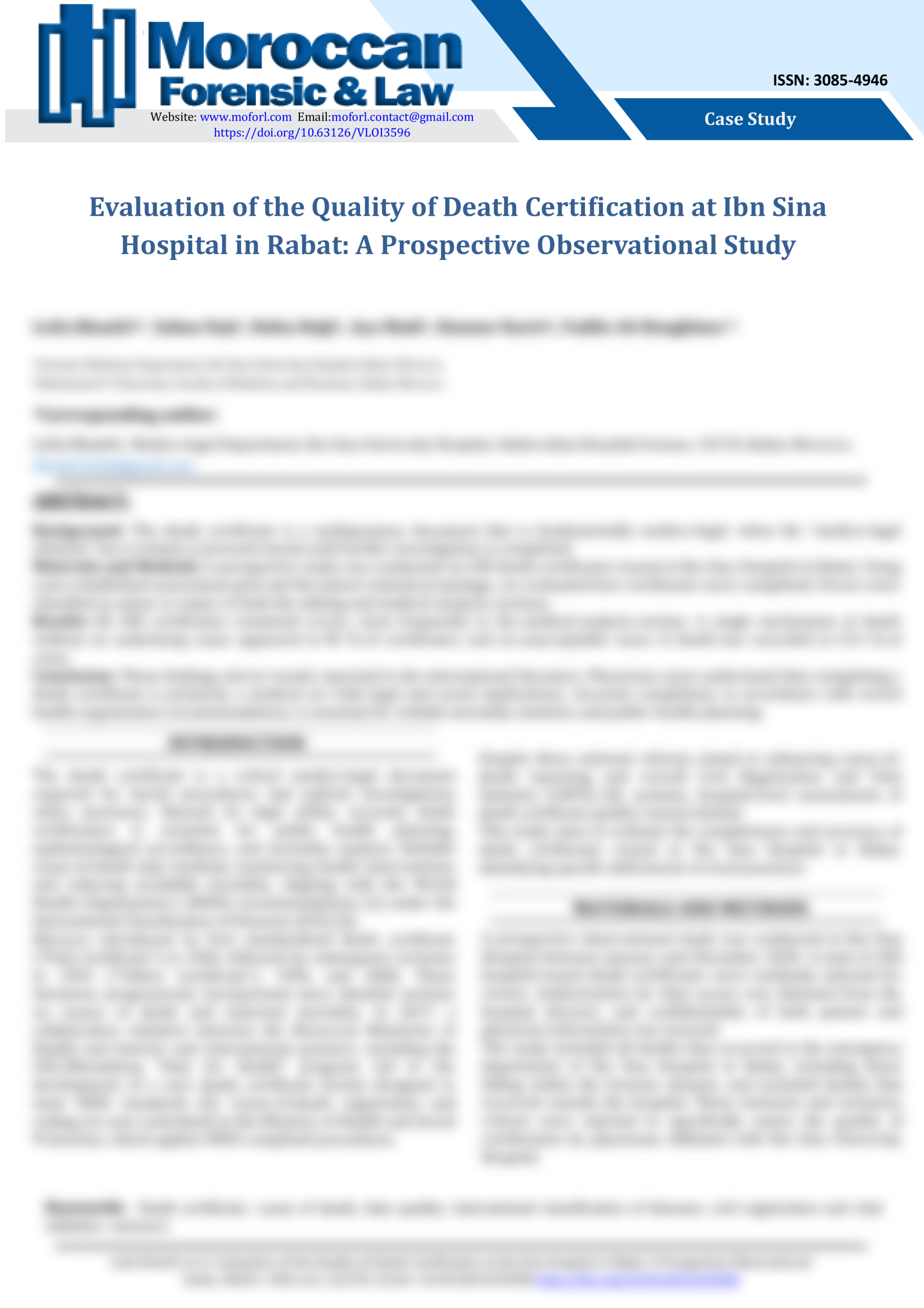Withholding and withdrawing life-sustaining therapy or Therapeutic relentlessness in intensive care unit: Moroccan cross-sectional study.

Article Withholding and withdrawing life-sustaining therapy or Therapeutic relentlessness in intensive care unit Moroccan cross-sectional study-moroccan forensic & law journal
Introduction Withholding and withdrawing therapies, as well as therapeutic relentlessness, represent critical aspects of medical decisions that are contentious issues in the absence of clear guidelines to regulate them.
Participants and methods: It’s a cross-sectional study based on a questionnaire collection that took place from June 2019 to February 2020. The study involved the entire Moroccan general population, which was then divided into two large groups: the first was represented by healthcare professionals and the second by non-healthcare workers. Subjects included in this study are adults over 18 years old of Moroccan nationality.
Data were collected by a self-administered questionnaire delivered by hand or in electronic format.
Results: The total number of questionnaires collected was 1364, 1083 were retained and 281 rejected.
The age of the participants ranged from 18 to 65 years with a mean of 30 (± 8) years.
The M/F sex ratio was 0.78.
The participants came from the twelve regions of Morocco.
Results were divided into two principal parts, a descriptive and an analytic part.
Results in our study were divided over many subjects. Mainly to show the different criteria based on to help make a final decision.
Conclusion: One of the questions that healthcare teams face is to define the limits when the guidelines are missing. In this study, healthcare professionals and the general population expressed a positive statement towards the WH/WD therapies decisions. Several factors affecting WH/WD decisions, age, socioeconomic level, pathological history and the evolution of the patient, were considered among the determinants decisions.
The primary goal of withdrawing life support is to allow the patient to die as humanely as possible, and the decision should be made in the most ethically sensitive, logically rigorous, legally allowed and clinically appropriate manner.



